In the world of culinary innovation, the contact grill has emerged as a must-have appliance for both professional chefs and home cooks alike. As the demand for high-quality cooking tools continues to grow, the concept of private label contact grills has gained significant traction. These customized cooking solutions offer a unique blend of brand identity, functionality, and cost-effectiveness, making them an appealing choice for businesses looking to enter the market or expand their product line. Understanding the nuances of the contact grill market, the benefits of private label options, and the process of design, quality control, sourcing, and marketing are crucial for anyone looking to capitalize on this burgeoning trend.
Introduction to Contact Grill Private Label
Contact Grill Private Label: Unlocking the Potential of Customized Cooking
In the ever-evolving world of culinary appliances, the contact grill has emerged as a favorite among home chefs and professional kitchens alike. But what if you could take this popular kitchen gadget and make it uniquely yours? That’s where private label contact grills come into play. By choosing to go the private label route, businesses can offer a product that stands out in a crowded market, tailored to their brand’s identity and customer preferences. Let’s delve into the world of private label contact grills and explore the benefits and considerations that come with this unique opportunity.
Private label contact grills offer a unique blend of innovation and personalization. Unlike off-the-shelf models, these grills are designed and manufactured to meet the specific requirements of a brand. This can range from custom branding and design elements to unique features that differentiate the product from its competitors. By opting for a private label contact grill, businesses can tap into a market that is both growing and highly sought after.
The contact grill market has seen a surge in popularity due to its versatility and ease of use. These grills are perfect for cooking a variety of foods, from sandwiches and burgers to vegetables and seafood. The even heat distribution and non-stick surfaces make them a favorite among those who enjoy outdoor cooking but want the convenience of indoor preparation. As the demand for high-quality cooking appliances continues to rise, private label contact grills present a lucrative opportunity for businesses looking to capitalize on this trend.
One of the key advantages of private label contact grills is the ability to customize the product to fit a brand’s identity. This can include everything from the grill’s color and logo placement to the packaging and marketing materials. By aligning the product with the brand’s image, businesses can create a cohesive and professional look that resonates with their target audience. This level of personalization not only enhances brand recognition but also fosters customer loyalty.
Design and functionality are also crucial considerations when it comes to private label contact grills. Manufacturers can work closely with brands to develop grills that not only look great but also perform exceptionally well. Features such as adjustable heat settings, built-in thermometers, and removable non-stick cooking surfaces can make a significant difference in the user experience. Moreover, brands can specify the materials used, ensuring that the grills are durable and long-lasting.
Quality control and sourcing are paramount in the production of private label contact grills. Brands must ensure that their products meet the highest standards of safety and performance. This involves working with reputable manufacturers who have a proven track record in producing high-quality kitchen appliances. By maintaining strict quality control measures, brands can build a reputation for reliability and trustworthiness among consumers.
Marketing private label contact grills can be a fun and engaging process. Brands have the freedom to create campaigns that highlight the unique features and benefits of their product. Whether it’s through social media, in-store promotions, or partnerships with influencers, there are countless ways to get the word out about these customized grills. The key is to tell a compelling story that connects with potential customers and showcases the value of the product.
As the market for contact grills continues to expand, so does the potential for private label offerings. With the right manufacturer and a clear vision for the product, brands can create a niche within this growing segment. The future of private label contact grills looks promising, with opportunities for innovation and differentiation at every turn.
In conclusion, private label contact grills offer a powerful tool for businesses looking to stand out in a competitive market. By combining custom design, functionality, and quality, these grills can become a cornerstone of a brand’s product line. As consumers seek out unique and high-quality cooking appliances, the private label contact grill market is poised for continued growth and success.

Understanding the Contact Grill Market
The contact grill market has experienced significant growth in recent years, driven by a surge in home cooking enthusiasts and a desire for healthier cooking options. With its unique ability to cook food with minimal oil, this kitchen appliance has become a staple in many households. To understand the market, it’s essential to delve into its key characteristics, consumer trends, and competitive landscape.
Grills come in various sizes and styles, ranging from compact countertop models to larger, more robust units suitable for outdoor use. The compact models are perfect for small kitchens or those who prefer cooking on the go, while the larger grills offer more surface area for cooking a variety of foods at once. This diversity in the market caters to a wide range of consumers, from single individuals to families.
One of the most notable trends in the contact grill market is the emphasis on health and wellness. As people become more conscious of their dietary choices, they are seeking cooking methods that are low in fat and high in flavor. Contact grills excel in this aspect, as their design allows for direct contact between the food and the grill plates, which reduces the need for additional oil. This has led to a growing segment of consumers who prioritize healthy cooking methods.
The market also reflects a shift towards convenience. Busy lifestyles often leave little time for cooking, and contact grills offer a quick and efficient way to prepare meals. The ability to cook steaks, sandwiches, and vegetables all in one appliance has made it a popular choice for those who value time-saving features. Additionally, many contact grills come with non-stick surfaces and easy-to-clean designs, further enhancing their appeal to time-pressed consumers.
In terms of technology, the contact grill market has seen innovations that cater to tech-savvy users. Smart grills equipped with digital temperature controls, Bluetooth connectivity, and recipe apps are becoming increasingly common. These features allow users to monitor and adjust the cooking process remotely, ensuring perfect results every time. The integration of technology has not only made cooking more enjoyable but also more accessible to a broader audience.
When it comes to competitive landscape, the contact grill market is highly competitive, with several well-established brands and numerous emerging players. Key players include names like George Foreman, Cuisinart, and Hamilton Beach, each with a range of products that cater to different consumer needs. These brands often focus on marketing their products’ unique features, such as even heating, easy cleaning, and durability.
Consumer preferences also play a significant role in shaping the contact grill market. For instance, the demand for grills with adjustable temperature settings has increased, allowing users to cook different types of food to their desired doneness. Additionally, there’s a growing interest in grills with multiple cooking surfaces, which can accommodate a variety of recipes simultaneously.
The market has also seen a rise in eco-friendly options, with some brands offering grills made from sustainable materials. This trend is particularly appealing to environmentally conscious consumers who want to reduce their carbon footprint while enjoying their favorite grilled meals.
Lastly, the contact grill market is not limited to the traditional use of cooking meats and vegetables. Chefs and home cooks alike are experimenting with this versatile appliance to create unique dishes, such as grilled sandwiches, pizzas, and even desserts. This culinary versatility has expanded the market’s appeal and has led to the development of specialized grills designed for specific cooking techniques.
In summary, the contact grill market is dynamic, with a focus on health, convenience, technology, and innovation. As consumer preferences continue to evolve, the market will likely see further advancements that cater to a broad spectrum of users. Whether it’s for a quick weekday meal or a weekend barbecue, the contact grill has become a versatile and essential tool in the modern kitchen.
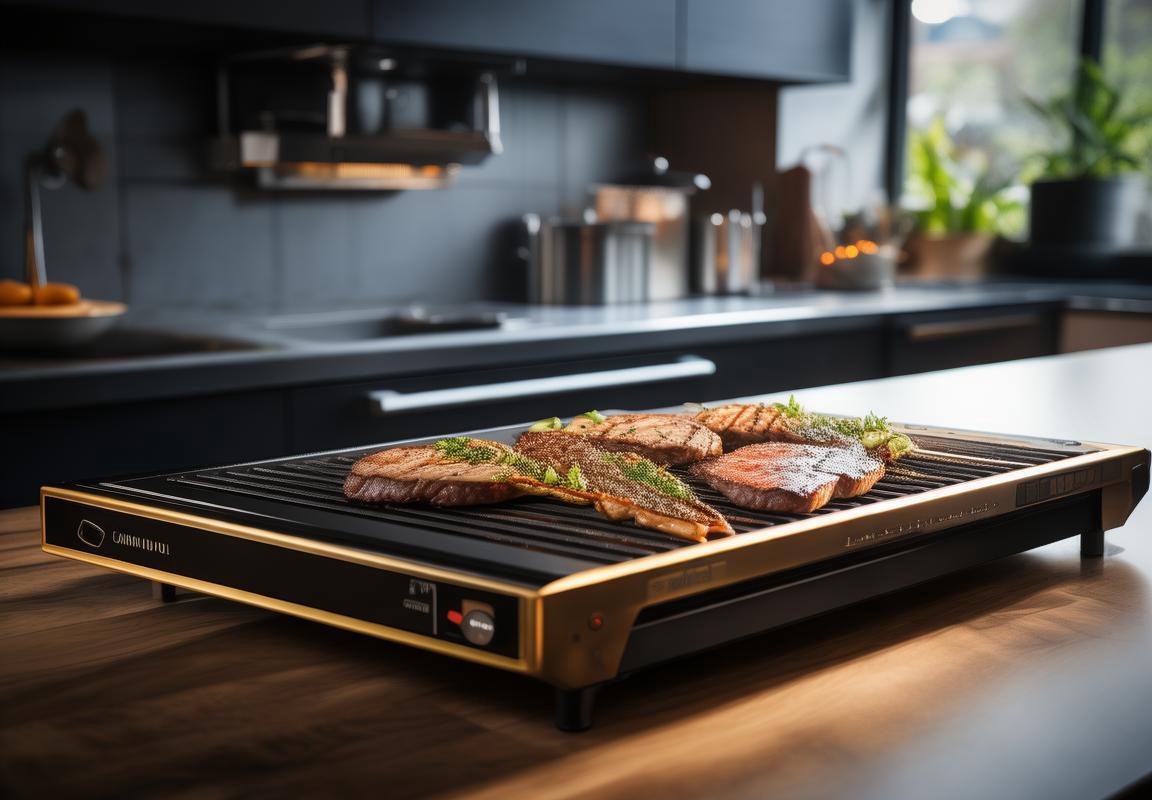
Benefits of Private Label Contact Grills
Private label contact grills have gained significant popularity in recent years, offering a host of benefits for both manufacturers and consumers. Here’s a closer look at the advantages that come with choosing to go the private label route with contact grills.
-
Customization and Branding Flexibility: One of the standout benefits of private label contact grills is the ability to customize the design and branding. This means that businesses can create a product that truly reflects their brand identity, from the logo to the color scheme. Whether it’s a sleek, modern design for a high-end kitchen or a vibrant, playful look for a family-oriented brand, private labeling allows for a unique and tailored product that stands out on the shelves.
-
Cost-Effective Production: By opting for private label, companies can often secure better pricing due to bulk orders and direct relationships with manufacturers. This cost-effectiveness can be passed on to the consumer, making the contact grills more accessible and competitive in the market. It also allows businesses to invest in other areas such as marketing or product innovation without compromising on the quality of the grill itself.
-
Quality Control: When you purchase private label contact grills, you typically have a say in the manufacturing process. This means you can ensure that the grills meet your quality standards. Many private label manufacturers offer quality control checks at various stages of production, ensuring that the final product is reliable and durable. This can help to build trust with customers and establish a reputation for excellence.
-
Innovation and Variety: The private label market is driven by consumer demand. This dynamic environment encourages manufacturers to innovate and offer a variety of contact grills to cater to different needs. From countertop models for small kitchens to commercial-grade units for restaurants, the range of options allows businesses to provide customers with what they are looking for, whether it’s ease of use, energy efficiency, or specific cooking features.
-
Marketing and Sales Support: Private label manufacturers often provide extensive marketing and sales support to help businesses promote their products. This can include product literature, point-of-sale materials, and even co-branded marketing campaigns. This support can be invaluable, especially for new or small businesses that may not have the resources to create their own marketing materials.
-
Seasonal and Trend-Driven Offerings: The private label market is responsive to seasonal trends and consumer preferences. This means that businesses can quickly adapt their offerings to include new designs, features, or even entire product lines that align with current market trends. Whether it’s a surge in interest in outdoor cooking or a focus on health-conscious grilling, private label allows for agility and adaptability.
-
Exclusivity: Private labeling offers a level of exclusivity that can be a significant selling point. By offering a product that isn’t widely available, businesses can create a sense of exclusivity that can drive demand. Customers may be more inclined to purchase a private label contact grill if they believe they are getting something unique and not just another generic product.
-
Sustainability and Eco-Friendly Options: With growing concerns about sustainability, private label manufacturers are increasingly offering eco-friendly options. This can include contact grills made from recycled materials, energy-efficient designs, and packaging that is environmentally responsible. By aligning with these values, businesses can appeal to a broader customer base that prioritizes sustainability.
-
Scalability: Private label contact grills offer scalability, which is particularly beneficial for businesses that are looking to grow. Whether you’re just starting out or looking to expand your product line, private labeling allows you to test the market with a new product without the high risk associated with developing and producing it in-house.
-
Customer Loyalty: Finally, private label contact grills can contribute to customer loyalty. When customers find a product they love and it aligns with their brand values, they are more likely to return for future purchases. By providing a quality product that is uniquely yours, you can build a loyal customer base that supports your brand and its products.
These benefits make private label contact grills an attractive option for businesses looking to differentiate themselves in a competitive market. Whether it’s through customization, cost savings, or innovation, private labeling offers a strategic advantage that can lead to increased sales and customer satisfaction.
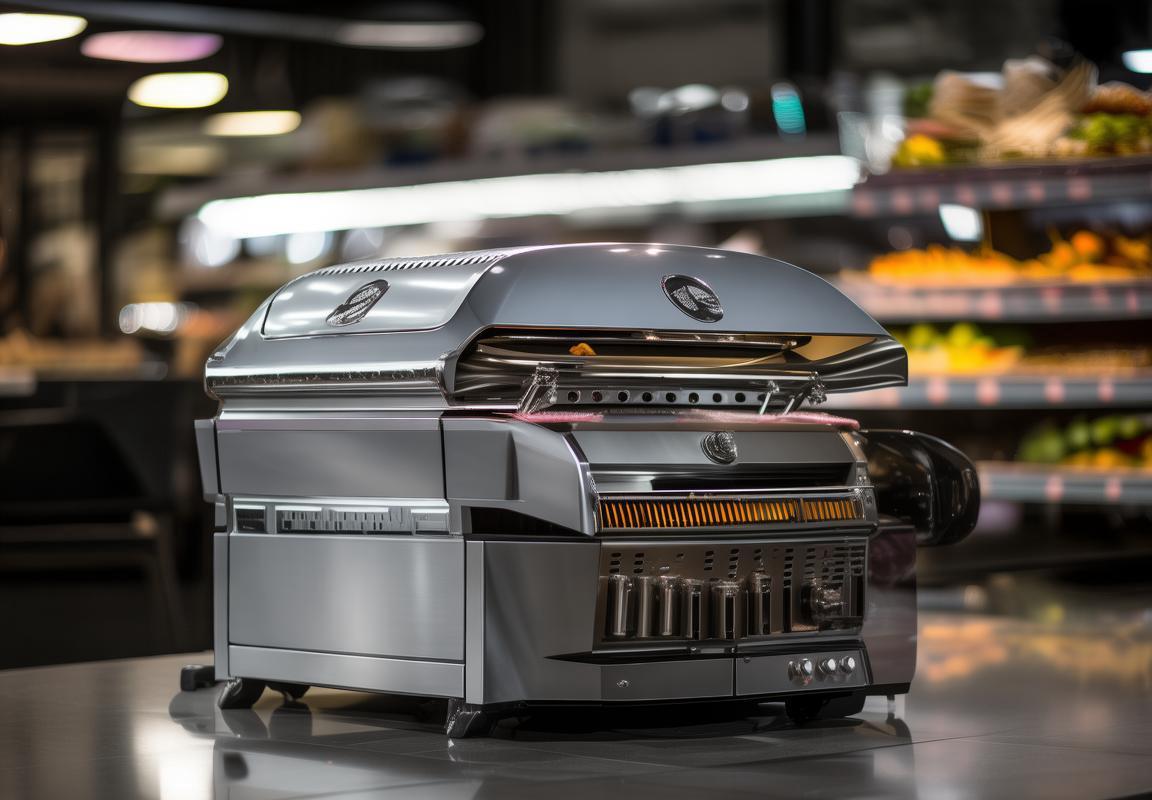
Choosing the Right Private Label Partner
Navigating the landscape of private label contact grills can be a daunting task, but selecting the right partner can make all the difference. Here are key factors to consider when choosing a private label partner for your contact grill business:
Tailored Product DevelopmentFinding a partner that offers tailored product development is crucial. They should understand your brand’s vision and be able to create a contact grill that aligns with your brand identity. This involves not just the design but also the functionality, ensuring the grill meets the specific needs of your target market.
Quality AssuranceThe quality of the product is paramount in the private label market. Your partner should have stringent quality control measures in place. This includes the materials used, manufacturing processes, and final product inspections. A reputable partner will be transparent about their quality standards and willing to provide certifications to back up their claims.
Customization CapabilitiesA good private label partner will offer a range of customization options. This could be as simple as adding your brand’s logo or as complex as modifying the design to fit a specific market trend. The ability to customize allows you to differentiate your product in a crowded marketplace.
Manufacturing ExpertiseThe manufacturing process plays a critical role in the success of your private label contact grill. Look for a partner with extensive experience in manufacturing small appliances. They should be adept at handling different scales of production, from small batches to large-scale manufacturing, without compromising on quality.
Logistics and DistributionA reliable partner will have a robust logistics and distribution network. This means they can handle the transportation of your products efficiently, ensuring timely delivery to your customers. They should also offer flexibility in shipping options to accommodate different customer needs.
Customer SupportCustomer support is often overlooked but is a vital aspect of the private label partnership. Your partner should provide excellent customer service, not just during the manufacturing process but also after the product is in the hands of consumers. This includes handling returns, exchanges, and providing technical support.
Financial ConsiderationsPricing is a significant factor when choosing a private label partner. You need to ensure that the cost of manufacturing and the retail price point are in line with your business model and pricing strategy. A good partner will offer competitive pricing without compromising on quality.
Market KnowledgeYour private label partner should have a deep understanding of the contact grill market. This includes insights into current trends, consumer preferences, and the competitive landscape. Their market knowledge can help you make informed decisions about your product offerings.
Innovation and R&DThe ability to innovate and invest in research and development is a sign of a forward-thinking partner. They should be continuously working on improving their products and exploring new technologies that could benefit your brand. This commitment to innovation ensures that your product remains competitive.
Legal and ComplianceEnsure that your partner is compliant with all relevant legal standards and regulations. This includes safety standards, labeling requirements, and export regulations if you plan to sell internationally. A partner that prioritizes compliance can save you from potential legal issues down the line.
Communication and TransparencyEffective communication is key to a successful partnership. Your partner should be open and transparent about their processes, timelines, and any challenges that may arise. Regular updates and clear communication can prevent misunderstandings and keep your project on track.
Sustainability and Ethical PracticesIn today’s market, sustainability and ethical practices are increasingly important. Your private label partner should demonstrate a commitment to environmental responsibility and ethical manufacturing. This not only aligns with consumer values but can also be a unique selling point for your brand.
ScalabilityAs your business grows, your private label partner should be able to scale up production to meet increased demand. This scalability is essential to maintain the quality of your product and keep up with market demands without delays.
Post-Sales SupportOnce your product is in the market, the relationship with your partner doesn’t end. Look for a partner that offers post-sales support, including assistance with marketing materials, technical advice, and customer service training for your staff.
Long-Term VisionLastly, consider the long-term vision of your partner. Are they invested in building a long-term relationship with you? A partner that sees you as a long-term client is more likely to prioritize your success and work with you to achieve your business goals.

Design and Customization Options
Navigating the world of private label contact grills opens up a realm of possibilities for businesses looking to carve out a niche in the market. When it comes to design and customization, the options are vast, allowing for a product that truly reflects your brand’s identity and appeals to your target audience. Here’s a closer look at what you can expect in terms of design and customization for your private label contact grills.
Unleashing Creativity with BrandingBranding is the cornerstone of any successful product, and private label contact grills offer a canvas for your creative vision. You can choose from a range of materials, colors, and finishes to ensure that your grill not only performs well but also stands out on shelves. From sleek stainless steel to bold, eye-catching patterns, the choice is yours to make your grill a statement piece.
Function Meets AestheticsDesigning a contact grill is not just about looks; it’s about creating a balance between form and function. Modern contact grills come with features like adjustable heat settings, non-stick surfaces, and ergonomic handles that enhance the cooking experience. Customization allows you to specify these features, ensuring that your grill is not only visually appealing but also user-friendly.
Tailoring to Specific Market DemandsThe market for contact grills is diverse, spanning from professional kitchens to home cooks. Tailoring your design to meet specific market demands can be a game-changer. For instance, if your target demographic is health-conscious consumers, you might opt for a grill with a high-quality, non-toxic coating that reduces the need for oil. Conversely, if your focus is on professional chefs, you might emphasize durability and precision in your design.
Incorporating Innovative TechnologiesTechnology is constantly evolving, and private label contact grills can incorporate the latest innovations. Smart features like Bluetooth connectivity, digital temperature control, and automatic shut-off can be integrated into your design, offering a competitive edge in the market. Customization allows you to decide which features are most important to your customers and how they should be presented.
Custom Graphics and LogosOne of the most direct ways to customize your contact grill is through graphics and logos. You can have your brand’s logo or any other custom artwork printed directly onto the grill’s surface or applied as a sticker. This not only reinforces brand recognition but also serves as a subtle marketing tool, encouraging customers to choose your product over competitors.
Material Choices and SustainabilityThe materials used in the construction of your contact grill can also be customized. From stainless steel to aluminum, each material has its own benefits in terms of durability, heat retention, and weight. Additionally, if sustainability is a priority for your brand, you can opt for eco-friendly materials that align with your company’s values.
Color Schemes and ThemesThe color of your contact grill can be a powerful tool in setting the tone for your brand. Whether you want to go for a classic black or silver, or you’re looking to make a bolder statement with vibrant reds or blues, the choice is yours. You can even design a grill that complements your brand’s color scheme or aligns with a specific theme, such as a rustic outdoor kitchen or a modern, minimalist kitchen aesthetic.
Customized Accessories and PackagingCustomization isn’t limited to the grill itself. You can also include accessories like spatulas, grill mats, or cleaning brushes that bear your brand’s logo. Additionally, the packaging can be designed to not only protect the grill but also to showcase your brand’s identity, with custom graphics and messaging that enhance the unboxing experience.
Quality Assurance and TestingBefore finalizing the design and customization, it’s crucial to ensure that the product meets quality standards. Working with a private label partner that offers rigorous testing and quality control ensures that your custom contact grill performs as expected and stands up to the demands of the market.
Collaboration with Design ExpertsDesigning a private label contact grill can be a complex process, especially if you’re not an expert in industrial design. Collaborating with design experts can help you navigate the intricacies of the design process, from conceptualization to prototyping, ensuring that your final product is both innovative and market-ready.
In summary, the design and customization options for private label contact grills are extensive, allowing for a product that is not only unique to your brand but also meets the evolving needs and preferences of your customers. From the materials and features to the branding and aesthetics, every detail can be tailored to create a contact grill that truly represents your brand’s vision and value proposition.
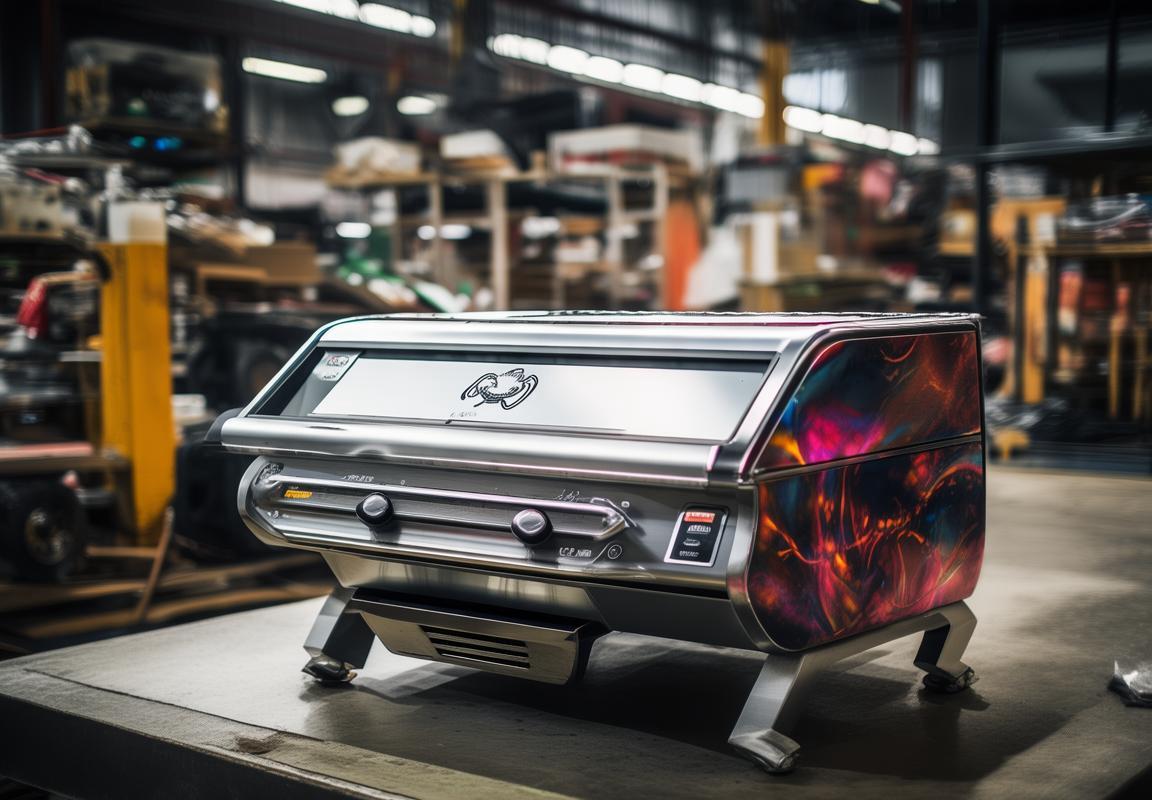
Quality Control and Sourcing
In the realm of private label contact grills, the quality of the product and the integrity of the sourcing process are paramount. Ensuring that every grill meets the highest standards is crucial for building a brand’s reputation and customer loyalty. Here’s a deep dive into the intricacies of quality control and sourcing for private label contact grills.
The Importance of Quality Assurance
Ensuring that a contact grill is up to par with consumer expectations involves rigorous quality assurance protocols. This includes thorough testing of materials, manufacturing processes, and final product functionality. A well-constructed grill should not only withstand daily use but also deliver consistent performance over time.
Material Selection
The foundation of a quality contact grill lies in the materials used. High-grade stainless steel is often the preferred choice for its durability and resistance to rust. However, other materials like aluminum and cast iron also have their place, depending on the intended use and the desired cooking outcomes. The right choice of materials can significantly impact the grill’s longevity and cooking performance.
Testing and Certification
Before a contact grill hits the shelves, it must pass a series of tests to ensure it meets safety and performance standards. These tests can range from electrical safety checks to thermal conductivity assessments. Moreover, certifications from recognized bodies like UL or CE can lend credibility to the product and reassure consumers of its quality.
Sourcing Components
The sourcing of components is a critical aspect of quality control. A reputable private label partner will have established relationships with suppliers who can provide high-quality parts. This includes not just the main body of the grill but also the heat elements, control panels, and other essential components. The consistency and reliability of these components are key to the overall performance of the grill.
Supply Chain Management
Maintaining a robust supply chain is essential for efficient and reliable sourcing. A private label partner should have a clear understanding of the supply chain, from raw materials to finished products. This includes managing inventory levels, ensuring timely deliveries, and minimizing the risk of stockouts or delays.
Ethical and Sustainable Practices
In today’s market, ethical and sustainable practices are not just a nice-to-have; they’re a must-have. A responsible private label partner will prioritize sourcing from suppliers who adhere to ethical labor standards and environmental sustainability. This approach not only supports positive social and environmental outcomes but also aligns with the values of many consumers.
Regular Audits and Inspections
Regular audits and inspections of the supply chain are crucial for ongoing quality control. These checks help identify any issues early on, allowing for prompt corrective actions. Auditors might look at production facilities, inventory records, and even the handling of returns or defects to ensure that quality standards are consistently met.
Training and Education
The people involved in the manufacturing and assembly processes play a vital role in maintaining quality. Training programs and ongoing education ensure that employees are knowledgeable about the products they are producing and the standards they are expected to meet. This includes understanding the latest safety protocols and quality control procedures.
Customer Feedback and Continuous Improvement
Customer feedback is a goldmine for quality control. A private label partner should actively seek and analyze customer feedback to identify areas for improvement. This could involve tweaking the design, enhancing functionality, or even altering the sourcing of certain components. Continuous improvement is key to staying competitive and meeting evolving consumer needs.
Transparency and Traceability
Transparency in the sourcing process builds trust with customers. A private label partner should be able to provide detailed information about where and how the product was made, including the origin of materials and the facilities used. Traceability ensures that any issues can be quickly identified and addressed, protecting the brand’s reputation.
In conclusion, the quality control and sourcing process for private label contact grills is a multifaceted endeavor that requires careful attention to detail, a commitment to excellence, and a deep understanding of the market. By focusing on these areas, private label partners can deliver products that not only meet but exceed customer expectations, setting the stage for long-term success.
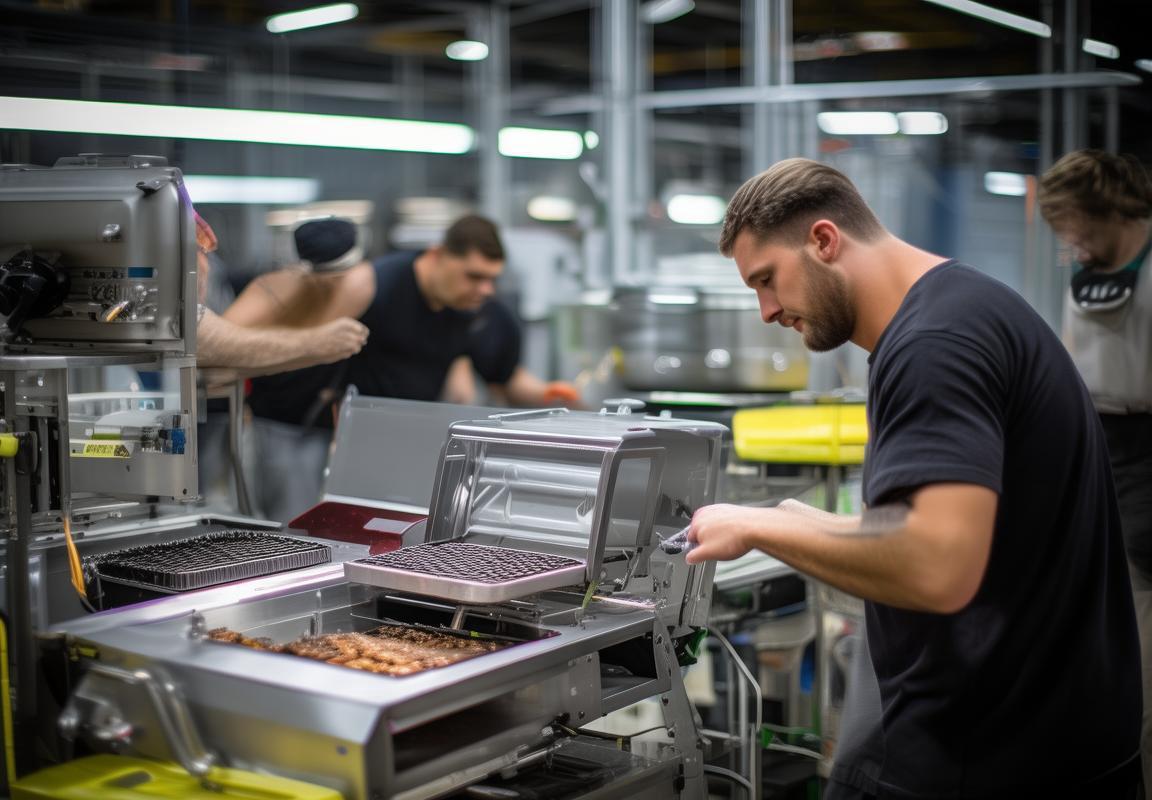
Marketing Your Private Label Contact Grills
Understanding the nuances of marketing private label contact grills can be a game-changer for your business. Here’s a breakdown of key strategies and considerations:
Tailoring Your Brand MessageCrafting a compelling brand message is crucial. It’s not just about what your contact grills can do; it’s about the lifestyle and values they embody. Consider the target demographic—whether it’s outdoor enthusiasts, health-conscious consumers, or busy professionals. Your message should resonate with their interests and needs. For instance, emphasizing the convenience of a portable contact grill for on-the-go cooking could appeal to a younger, urban audience.
Leveraging Social MediaSocial media platforms are a powerful tool for marketing. Visual content, such as high-quality images and videos showcasing the grill in action, can capture attention. Platforms like Instagram and Facebook allow for targeted ads, ensuring your message reaches the right audience. Encourage user-generated content by hosting giveaways or challenges, where participants post photos of their meals cooked on your grill. This not only promotes engagement but also provides authentic testimonials.
Influencer PartnershipsInfluencer marketing can significantly boost your brand’s visibility. Partner with influencers who align with your brand values and have a substantial following among your target market. These individuals can create authentic content, such as reviews or cooking tutorials, that showcase the benefits of your contact grills. Influencer endorsements can lend credibility and reach a broader audience in a more personal and relatable way.
Content MarketingContent marketing is about providing valuable information to your audience. Create blog posts, how-to guides, and recipes that highlight the versatility of your contact grills. This not only educates potential customers but also positions your brand as a thought leader in the cooking and grilling space. SEO-optimized content can improve your website’s visibility, driving organic traffic and potential sales.
Email MarketingEmail marketing remains a potent tool for nurturing customer relationships. Develop a segmented email list to send personalized content, such as exclusive offers, new product announcements, and cooking tips. Personalization can increase open rates and engagement, as subscribers feel a more direct connection to your brand. Don’t forget to optimize for mobile devices, as many users access emails on their smartphones.
Trade Shows and EventsParticipating in trade shows and events can increase brand exposure. These gatherings attract industry professionals and consumers alike, offering a unique opportunity to showcase your products and engage with your audience. Consider hosting a booth with interactive cooking demonstrations or hosting a contest to generate buzz. Follow-up with attendees through email or direct mail to maintain the relationship beyond the event.
Customer Reviews and TestimonialsPositive reviews and testimonials are invaluable for building trust and credibility. Encourage satisfied customers to leave reviews on your website, social media, and other platforms. Highlight these reviews in your marketing materials, and consider featuring customer stories in your advertising campaigns. Real-life success stories can be more persuasive than any sales pitch.
Packaging and PresentationThe way your contact grills are packaged and presented can significantly impact consumer perception. Invest in high-quality packaging that not only protects the product but also reflects your brand’s image. Consider the unboxing experience—make it memorable and exciting. Packaging can also serve as an extension of your marketing, providing opportunities for brand messaging and additional product information.
Customer ServiceExceptional customer service can differentiate your brand. Ensure that your team is well-trained to handle inquiries, provide assistance, and address any issues promptly and professionally. Positive customer service interactions can turn a one-time buyer into a loyal customer and a brand advocate.
Consistent Branding Across ChannelsMaintain a consistent brand image across all marketing channels. This consistency helps in building brand recognition and trust. Ensure that your logo, color scheme, and messaging are consistent across your website, social media profiles, packaging, and advertising materials.
Monitoring and Analyzing PerformanceRegularly monitor the performance of your marketing efforts. Use analytics tools to track metrics such as website traffic, conversion rates, and social media engagement. This data will help you understand what’s working and what needs improvement. Adjust your strategies accordingly to optimize your marketing budget and achieve the best results.
By focusing on these aspects, you can effectively market your private label contact grills and build a strong, recognizable brand in a competitive market. Remember, successful marketing is about creating a connection with your audience and providing them with a reason to choose your products over others.
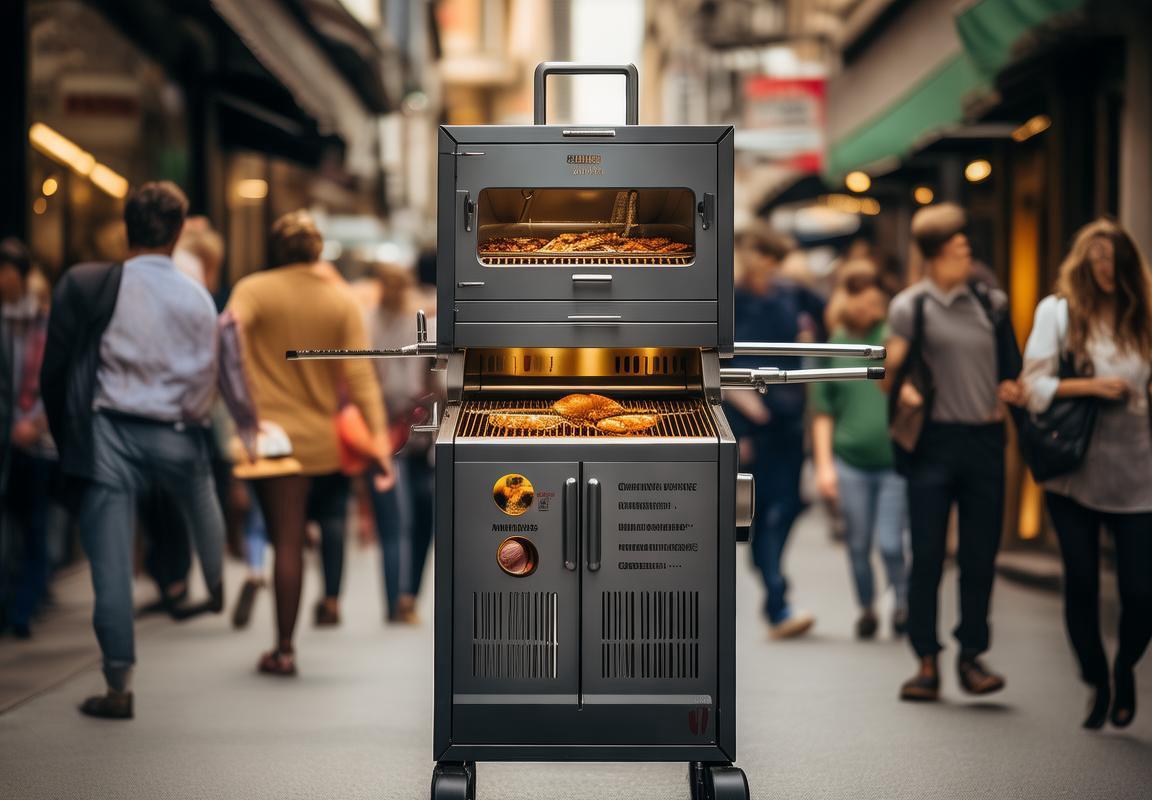
Conclusion: The Future of Private Label Contact Grills
The landscape of the grill market is evolving, and private label contact grills are emerging as a compelling choice for both retailers and consumers. Here’s a look at how marketing these grills can make a significant impact in the industry.
-
Targeting the Right AudienceUnderstanding your audience is crucial. Private label contact grills often cater to a diverse group, from outdoor enthusiasts to busy home cooks. Tailoring your marketing efforts to highlight features that appeal to these different segments can greatly enhance engagement. For instance, emphasizing ease of use and quick cooking times might resonate with busy professionals, while highlighting the grill’s ability to mimic outdoor grilling results could attract food enthusiasts.
-
Creating a Strong Brand IdentityA distinctive brand identity can set your private label contact grill apart from competitors. This involves developing a compelling logo, choosing a memorable brand name, and crafting a brand story that resonates with your target market. Whether it’s a focus on innovation, sustainability, or family heritage, a strong brand identity can build trust and loyalty among consumers.
-
Leveraging Social MediaSocial media platforms offer a powerful tool for marketing private label contact grills. By creating engaging content, you can reach a broad audience quickly. Visuals, such as high-quality images of delicious meals being prepared on the grill, can spark interest. Encouraging user-generated content, like sharing grilling recipes or tips, can also foster a community around your brand. Influencer partnerships can amplify your message and tap into their followers’ trust.
-
Collaborating with Influencers and ChefsInfluencers and chefs can be instrumental in promoting your private label contact grills. By collaborating with them, you can tap into their established audiences and credibility. These partnerships can take the form of sponsored posts, recipe collaborations, or even live cooking demonstrations. The key is to find influencers who align with your brand values and have a genuine interest in grilling.
-
Promotional Events and ContestsHosting promotional events or contests can create buzz around your private label contact grills. For example, a summer grilling contest that encourages participants to share their best recipes cooked on your grill can generate excitement and user engagement. Offering prizes, such as additional grilling accessories or gift cards, can incentivize participation and further spread the word.
-
In-store Displays and DemonstrationsIn-store displays are a tangible way to showcase your private label contact grills. Well-designed and strategically placed displays can attract customers’ attention and encourage them to try the product. Offering live demonstrations by trained staff can also be effective. Customers appreciate the hands-on experience and the opportunity to see the grill in action.
-
E-commerce and Online SalesAs more consumers turn to online shopping, having a robust e-commerce presence is essential. Your website should be user-friendly, with detailed product descriptions, high-resolution images, and easy navigation. Offering special online deals or bundling the grill with accessories can boost sales. Additionally, leveraging SEO strategies can help your website rank higher in search results, making it easier for potential customers to find your products.
-
Customer Reviews and TestimonialsPositive customer reviews and testimonials can significantly influence purchase decisions. Encourage satisfied customers to leave reviews on your website, social media, and other platforms. Highlighting these reviews in your marketing materials can build credibility and trust. Consider creating a case study or video featuring satisfied customers using your grill to showcase its benefits.
-
Sustainability and Eco-friendly PracticesIn an era where sustainability is a growing concern, promoting eco-friendly practices can be a unique selling point. If your private label contact grills are made with sustainable materials or manufactured with environmentally conscious methods, be sure to highlight these aspects in your marketing. This can appeal to environmentally conscious consumers and differentiate your product from competitors.
-
Continual Innovation and Product DevelopmentFinally, to stay competitive in the market, it’s important to continually innovate and develop new products. By staying abreast of trends and consumer needs, you can introduce new features or models of your private label contact grills. Keeping your product lineup fresh and exciting can help maintain customer interest and drive repeat purchases.
In conclusion, marketing private label contact grills effectively requires a multifaceted approach that combines understanding your audience, building a strong brand, leveraging digital and traditional marketing channels, and fostering customer loyalty. By focusing on these strategies, you can position your private label contact grills for success in a dynamic and competitive market.